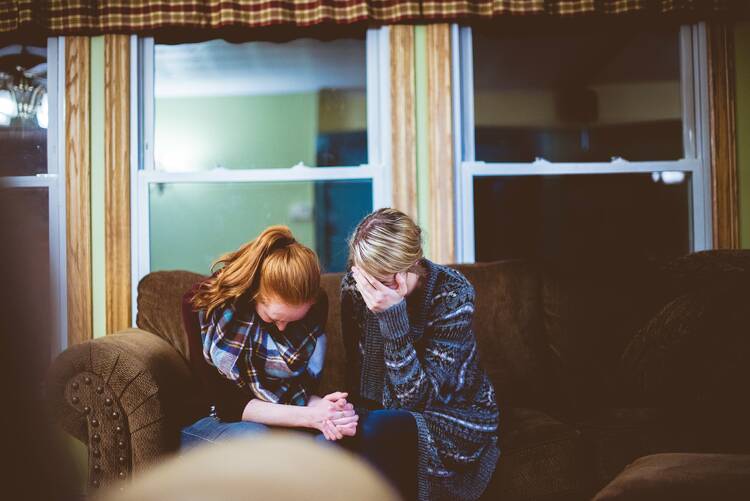A Reflection for Monday of the Sixth Week in Ordinary Time
Find today’s readings here.
“Why does this generation seek a sign?
Amen, I say to you, no sign will be given to this generation.” (Mk 8:12)
Ten years ago today, I lost a friend to cancer. I was young and so was she, and for a while, my world was rocked by grief.
To try to get through those painful early days, I prayed a lot. My prayers were not only more frequent than they ever had been before; they also took on a new character. They were more honest and conversational. Sometimes it helped to think of myself in conversation with both God and my friend; imagining her there, I opened up, and I believed that God got to listen in on the authentic, unfiltered voice I would have used with her.
Slowly, though, as time went on, my sense of her presence began to fade. My memories were blurrier and my grasp on her was loosening. It started to feel like God and I were now meeting up for conversation alone, without our usual buffer—and I wanted her back.
In prayer, I started to say the thing that many grieving people have said before me: “God, give me a sign so I know that she’s O.K., that she’s still with me.” Like the Pharisees in today’s Gospel, I was asking for confirmation in something visible and unmistakable.
But today’s Gospel suggests that we shouldn’t hold our breath. Jesus says that “no sign will be given to this generation,” and I suppose it’s safe to assume that the same could be said of the generation of today.
When we talk about signs or hope for them, what do we mean—and does our hope align with God’s?
When we plead for a tangible sign, we’re searching for evidence of God’s goodness and mercy—and having in mind one particular way that we might see it. We’re thinking it could be possible that God is that all-powerful, all-knowing, all-loving being that we’ve heard about, and we’re looking up to God with a challenge: “Prove it.”
As cliché as it might sound, I found much more luck when I gave up on asking or looking for signs. When I let go of the idea of the sunset or the rainbow or the fact that I’d see a sign from God at all, the memories of my friend and I would come back to me once in a while. I’ll never forget walking up the stairs of the library where I studied almost every day in college and seeing, carved into the marble wall, the words of the prayer she had said daily during the last year of her life: “Give me only your love and your grace, that is enough for me.”
Now I know that these are the final words of St. Ignatius’ Suscipe, and they perfectly express the Jesuit principle of indifference, by which we stop clinging to the passing things in our lives and recognize that God’s love is all that lasts. But I’ll always find poignant meaning when I think about this prayer through the eyes of a 15-year-old girl who held on to God’s grace as she lost everything else to cancer. She prayed this as she lost her hair, and then her ability to walk, and then her eyesight, and then her hearing and her ability to speak.
More than signs, there are reassurances in our lives. God doesn’t cause them to materialize out of thin air when we beg for them; if we look closely, they are already part of the fabrics of our lives, or on the walls of the buildings where we spend our days—but to which we’ve never before paid close enough attention. God’s grace is in plain sight, just waiting for us to see it.








